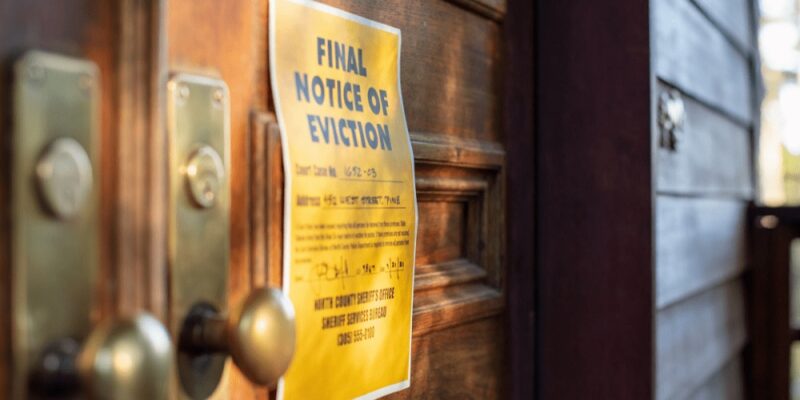The eviction process in Michigan is a “Summary Proceeding.” To legally evict a tenant, landlords must follow the Michigan eviction laws and procedures set down by the courts of Michigan. Michigan’s eviction process can be broken down into the following steps.
Three Reasons ToRemove A Tenant
Three justifications exist in Michigan for a landlord to evict a tenant. Non-payment of rent is by far the most prevalent. The other two justifications are creating a health risk and terminating the tenant’s lease.
Notice To Leave – Eviction Notice InMichigan
The first step in the eviction procedure in Michigan is to serve your tenant with a “Notice to Quit.”
The Notice to Quit informs the renter that they have days to remedy the situation or vacate the premises. According to the notice, they are threatened with eviction if they don’t comply. In Michigan, there are three types of notices to quit:
- Non-Payment of Rent: 7-Day Notice to Vacate In this case, the tenant has seven days to pay their rent or face eviction. In Michigan, this is the most typical form of Notice to Quit.
- Health Hazard: 7-Day Quit Notice This allows the tenant a seven-day notice to leave if they are putting their health or the property at risk.
- Termination of Tenancy: 30-Day Notice to Quit. This is used to terminate a month-to-month lease or lease infractions (unauthorized pets, for example).
Complaints AndCitations
According to Michigan eviction laws the landlord must proceed to court and file a Complaint about Eviction if the tenant has not cooperated with the demand or moved out after the landlord has served the Notice to Quit (an eviction lawsuit). The landlord must go to the District Court clerk’s office in the jurisdiction where the property is located to get this information. The landlord can quickly fill out an Eviction Complaint form at most District Court Clerk’s Offices. It will be sent to the renter once filed with the court. If the tenant receives a Summons, they will learn why the landlord is attempting to evict them and when the hearing occurs.
Hearing
There will be a hearing for the landlord and renter to be evicted. To successfully evict a tenant, the landlord must appear in court. A copy of the Notice to Quit, the lease (if applicable), and any documentation or witnesses needed to substantiate the case should be brought to the hearing by the landlord.
Judgment
It is possible for the landlord to win their case in court and receive a Judgment. In most cases, this gives the tenant a window of time to leave the property.
Letter OfRestitution
After the 10-day period has passed without the renter vacating the property, the court will issue a “Writ of Restitution,” instructing the sheriff to evict the tenant.
Conclusion
Tenants can be evicted from a rental property through the legal procedure of the eviction. As a result of the law in Michigan, eviction cases can be resolved more quickly than in a typical lawsuit.












Comments